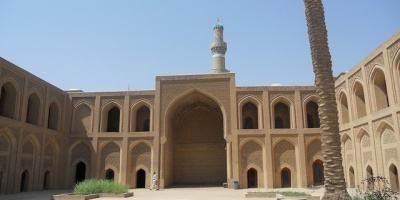
Abu Bakr al-Siddiq, Caliph Umar, Hadith, History, Ibn al-Mājishūn, Ibn Kathir, Imam Ghazali, Moonsighting, Politics, Sahih al-Bukhari, Sahih Muslim, Scholars, Shari'ah, Sunnah
37 Posts

Abu Bakr al-Siddiq, Caliph Umar, Hadith, History, Ibn al-Mājishūn, Ibn Kathir, Imam Ghazali, Moonsighting, Politics, Sahih al-Bukhari, Sahih Muslim, Scholars, Shari'ah, Sunnah

Creed, Egypt, Gaza, Hadith, Ibn Hajar al-'Asqalani, Ibn Hibban, Imam al-Nasafi, Imam al-Nawawi, Imam al-Taftazani, Jordan, Pakistan, Palestine, Politics, Prophecy, Qur'an, Rulers, Sami Moubayed (Syrian historian), Scholars, Sunnah, Tafsir, Turkey

Creed, Hadith, Ibn Kathir, Imam al-Qurtubi, Imam Ghazali, Judges, Politics, Qur'an, Scholars, Shari'ah, Sunnah, Tafsir, Uncategorized

Hamza Yusuf Hanson, Ibn al-Jawzi, munkar, Palestine, Politics, Punishment, Rulers, Scholars, Shari'ah

Egypt, Hadith, Jihad, Palestine, Politics, Qur'an, Rulers, Scholars, Secularism, Sunnah, Uncategorized

Abu Bakr al-Siddiq, Hadith, Imam al-Qurtubi, Jihad, Politics, Qur'an, Seerah, Shari'ah, Sunnah, Tafsir

History, Imam al-Qalqashandi, Politics, Rulers

Creed, Devil, Imam al-Qurtubi, Politics, Qur'an, Rulers, Tafsir

Creed, Ibn Battah, maruf, munkar, Politics, Shari'ah, Uncategorized

Creed, Hadith, Ibn Taymiyyah, Iman, Jihad, maruf, munkar, Politics, Qur'an, Rulers, Shari'ah, Sunnah